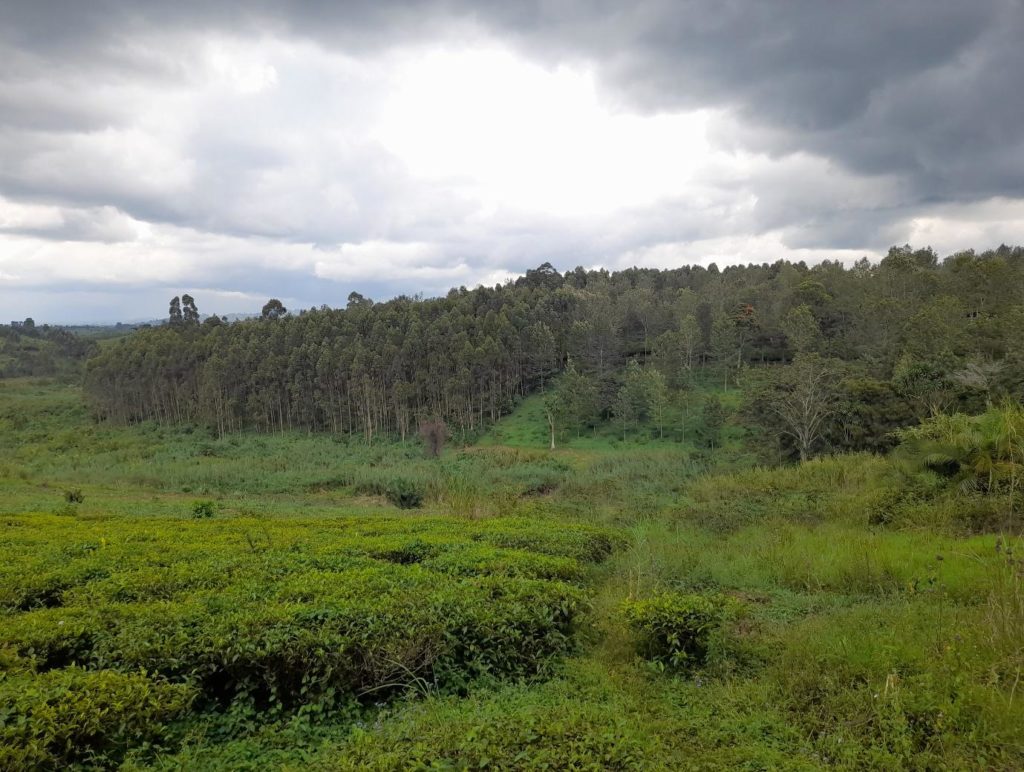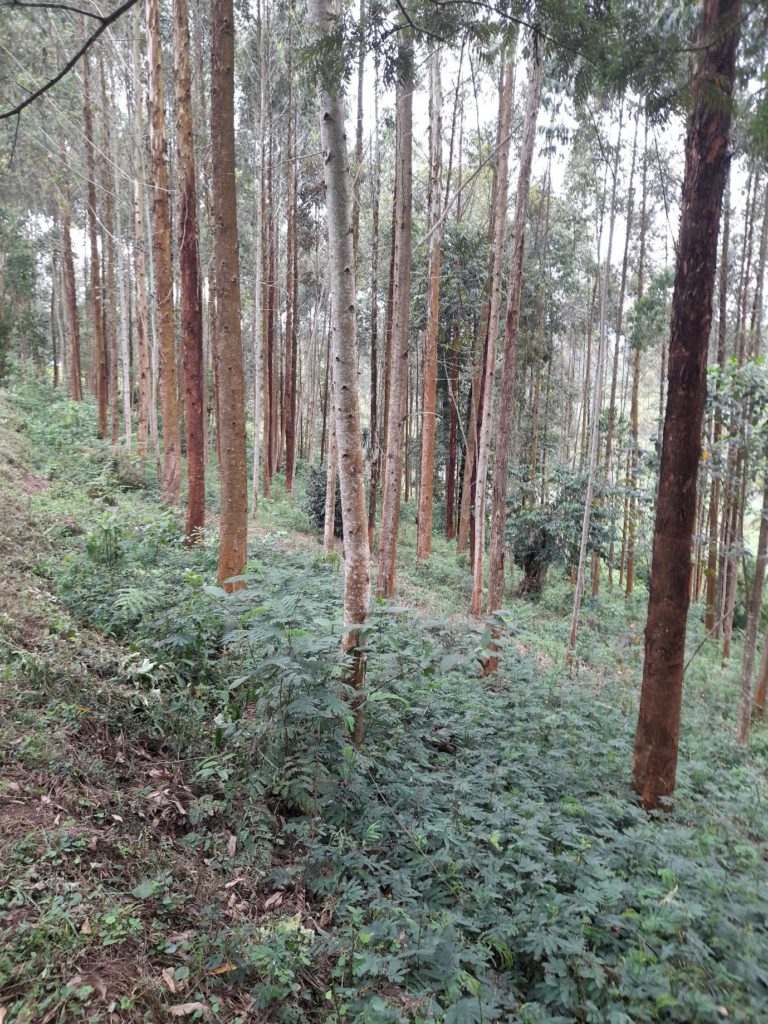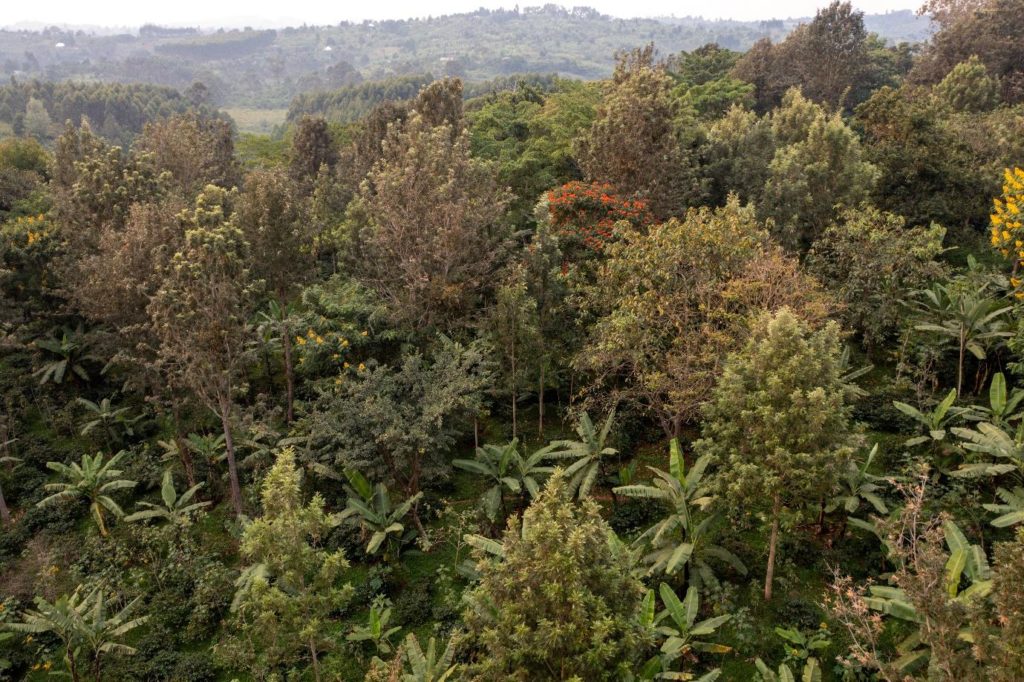Wetlands and Natural Forests
During the last 100 years Uganda has changed considerably and so has the population. In 1910 it was estimated that there was a population of 2.5million people. Currently Uganda has a population of 27 million. This rapid expansion has placed great pressure on the environment and many species of trees and wildlife are facing extinction.
To combat this, Kahangi Estate preserves the natural papyrus swamps and demarcated areas for indigenous trees. The farm management and team actively identify trees that are becoming extinct in the area and introduce them into the natural forest area.

Woodlots
With Uganda’s rapidly growing population, Kahangi Estate takes its responsibility for the future and has planted 26 acres of Eucalyptus and 7 acres of Pine Trees. The eucalyptus is fast growing and is harvested after 7 years. Part of the harvest is used on the estate for fuel wood to aid processing and part is sold for fuel wood. After harvesting the stumps of the Eucalyptus trees are dressed and the trees regrow again.

Plantain
Kahangi Estate has two main varieties of bananas. Matooke (matoke) is a type of banana which can be boiled and is the stable food of many people in Uganda. The second variety of banana is called Bogoya, a sweet banana. All the bananas are intercropped with the coffee and trees. Fertility is provided by the banana trash, recycled coffee waste and ash from the oil distillation unit.

Cattle, sheep & chickens
The farm maintains a small herd of cattle and approximately 30 sheep. The animals are maintained organically. At night The farm maintains a small herd of cattle and approximately 30 sheep. The animals are maintained organically. At night the animals are kept in the night Kraal and during the daytime they are grazed in the grazing areas or in the woodlots. Tick control is conducted by using the leaves of Tephrosia which are pounded and mixed with water. The farm also maintains free range chicken which provides a source of fresh meat and eggs to the farm staff.
